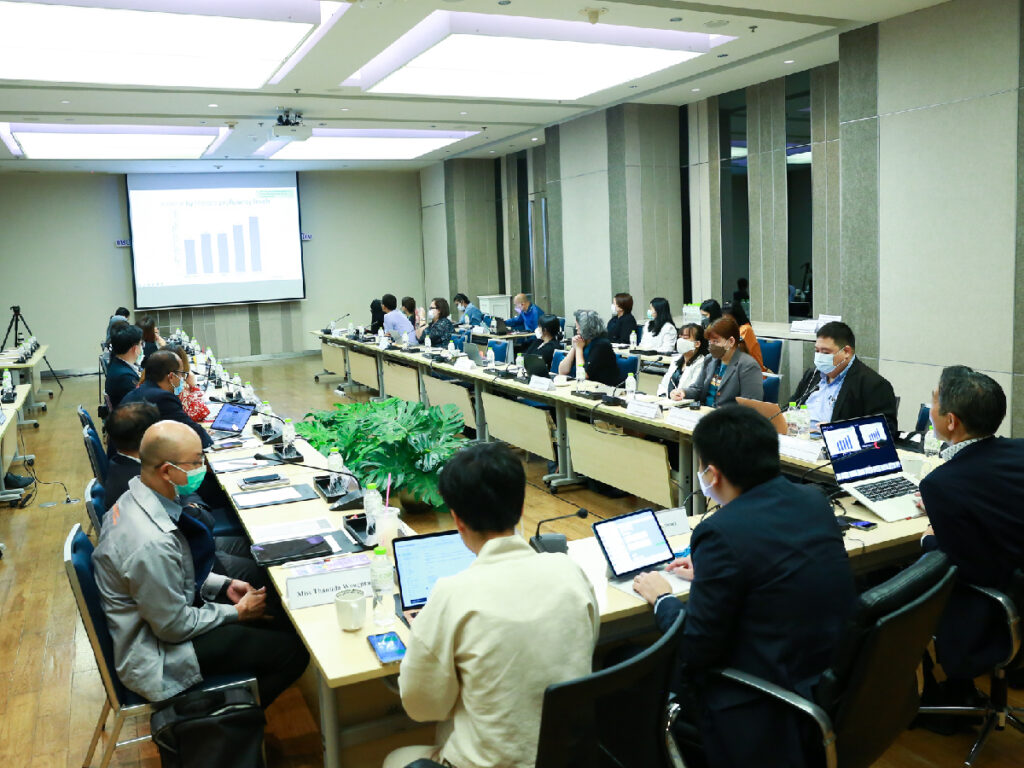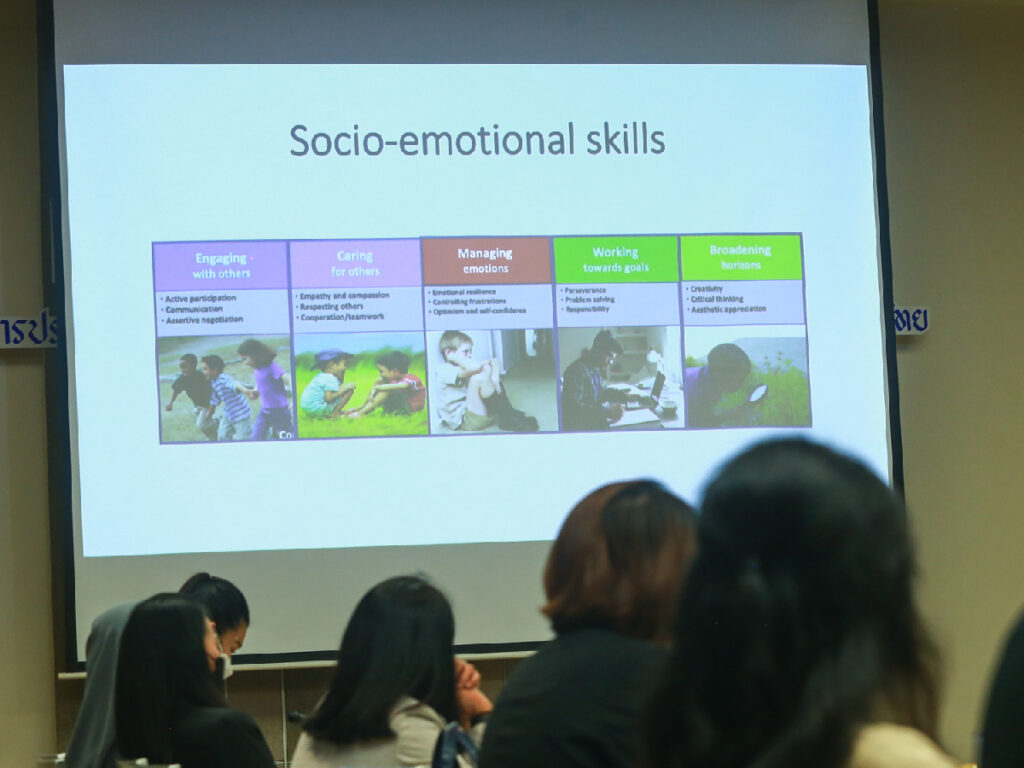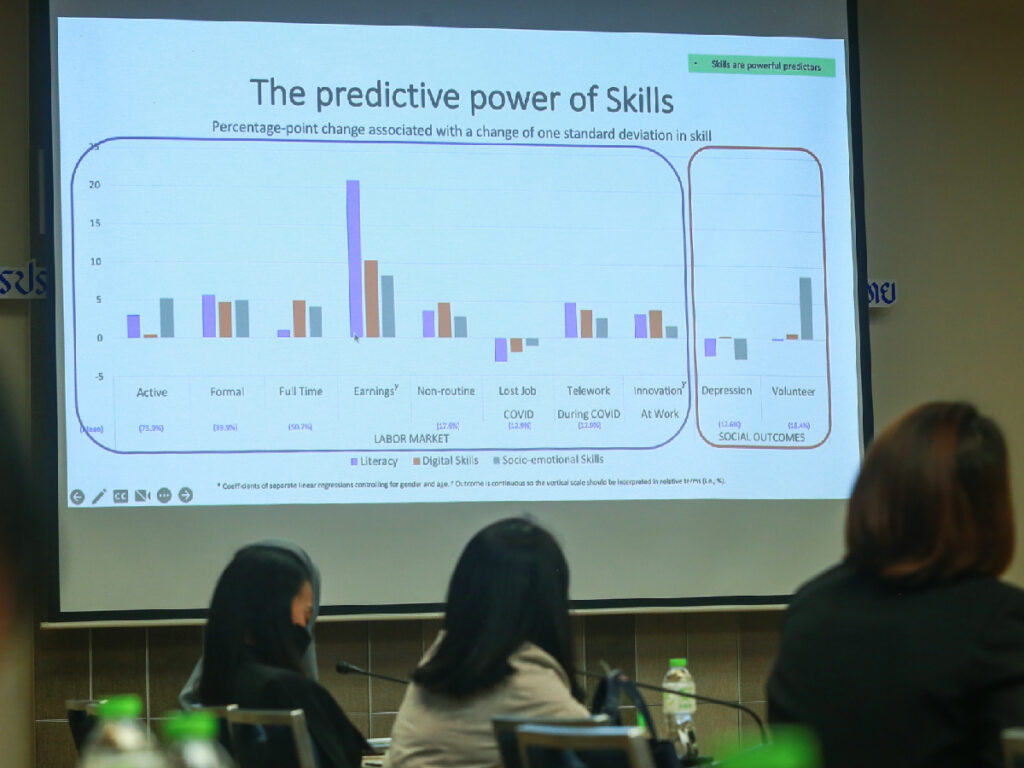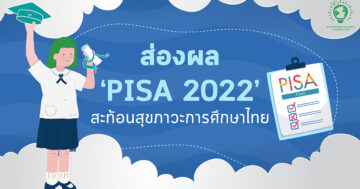According to Dr. Kraiyas Phatrawat, Manager of the Equitable Education Fund (EEF), the meeting’s goal was to show the findings of a preliminary data analysis from a survey of skills and readiness among Thai youth and people of working age. The meeting, which took place on September 7-8, was significant in Thailand’s growth of young and people of working age.
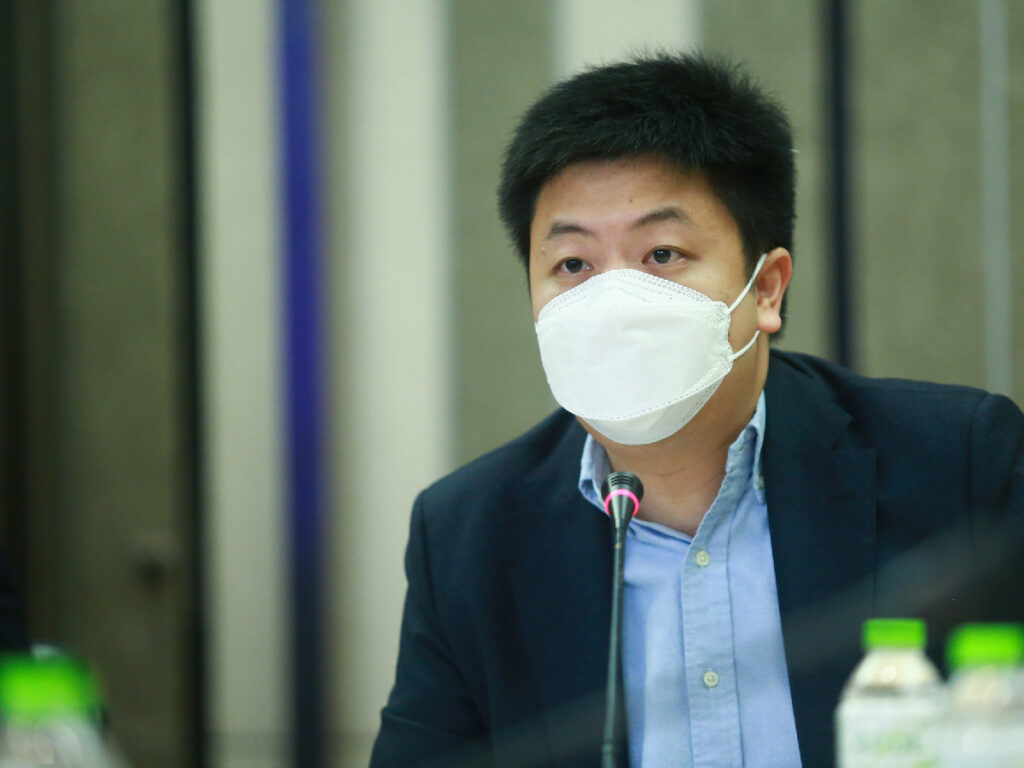
At the same time, it creates a forum for organizations working in many policy fields to participate in debates, share ideas, and offer guidance. It will be helpful in collecting and evaluating the data so that it can be applied to advance the development of Thailand’s young and working-age population.
However, the status of the job market in Thailand right now is quite concerning. Specifically, the difference in skill levels between Thai and international workers is widening. Many Thai workers have skills that do not meet the needs of their employers. Thailand has been trapped in a middle-income trap for more than 20 years.
Furthermore, it was revealed that the labor quality of employees in Malaysia, Hong Kong, Japan, South Korea, and Taiwan was superior than that of Thai workers by 1.6 times, 3.8 times, 2.9 times, 2.6 times, and 3 times, respectively.
According to a World Economic Forum survey, Thai employees are also at a moderate level. Most people still lack sophisticated abilities, and just 14.40% of workers have those talents. In Thailand, there are around 44.81 million persons between the ages of 15 and 59, of whom 37.62 million are working. Of them, over 75% had less than a secondary or vocational education, compared to 64.9% of new generation employees between the ages of 25 and 29 who did not complete more than a secondary or vocational education.
Therefore, Thailand cannot build the nation to experience sustainable growth without taking more rapid action. The solution to this issue lies in emphasizing the training of new generations of employees who can swiftly adjust to the demands of the modern labor market. It will serve as a foundation for the human capital needed to advance the nation in the future.
However, without a clear, flexible strategy and attention to the needs of individuals who are experiencing the issue, progress cannot be achieved. Without what is known as data, it is hard to set rules in place to attain the most beneficial practices.
In order to gather statistics on the young and working-age population in Thailand, ages 15 to 65, The Equitable Education Fund (EEF) works with the World Bank, Thammasat University, and the National Statistical Office. This information will be used as a basis for developing policy.
According to World Bank Senior Global Practice Economist Koji Miyamoto, the aim of today’s preliminary data is to demonstrate that Thailand still has a skills gap in its labor force while also attempting to provide the bare minimum of skills necessary for Thai workers to advance to the advanced workforce.
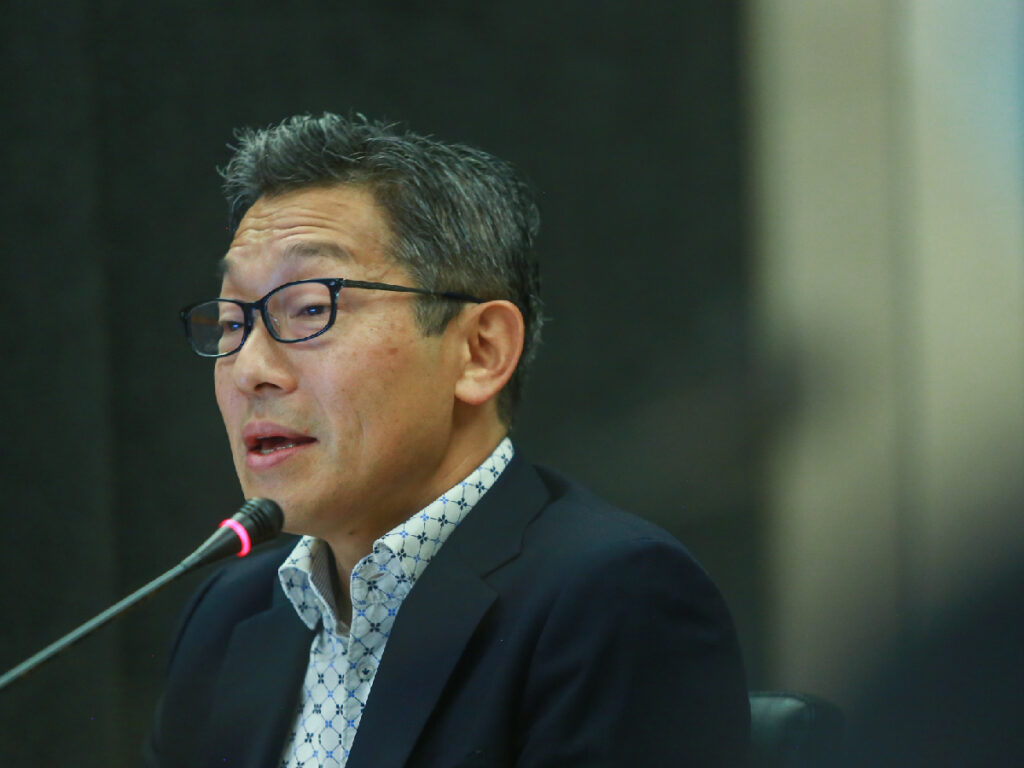
“The focus of this study is to show how a systematic approach to education policy and skill development may advance a nation’s growth. How might laws lower obstacles to market challenges? and other societal issues that Thailand is now dealing with to effectively implement the Thailand 4.0 Plan and transition from a middle-income to a high-income country.”
From Koji’s perspective, Thailand has a variety of persistent ambitions for societal advancement. Personally, I think that those development plans will heavily rely on education and training regulations. Additionally, the preceding education strategy serves as a conduit for connecting young people who need to acquire labor-market-relevant skills.
According to Koji, this study’s data gathering focused on adult skill assessment. The World Bank employed the most cutting-edge research approach to access essential skills such as Literacy skills, Digital skills, and Social-Emotional Skills.
The data collection was also expanded by using a series of questionnaires to record the background history of the workforce in order to see if skills correlate with the education and training that a worker receives, as well as to look at the results of labor and how it contributes to the labor market.
“This time, I would like to thank everyone who was engaged in arranging this conference and all the comments received over the past few days. It will certainly benefit the preparation of the Skills and Readiness Survey of youth and the working age population in Thailand,” Koji said.
According to Dr. Phoomsaran Thongliamnak, director of the Equitable Education Research Institute (EEFI) at Equitable Education Fund (EEF), organizing this forum to drive development is the first gathering in Thailand. This conference tries to examine the skills of the working-age population at the level by highlighting the necessity of three skills that must be present: literacy skills, digital skills, and social-emotional skills.
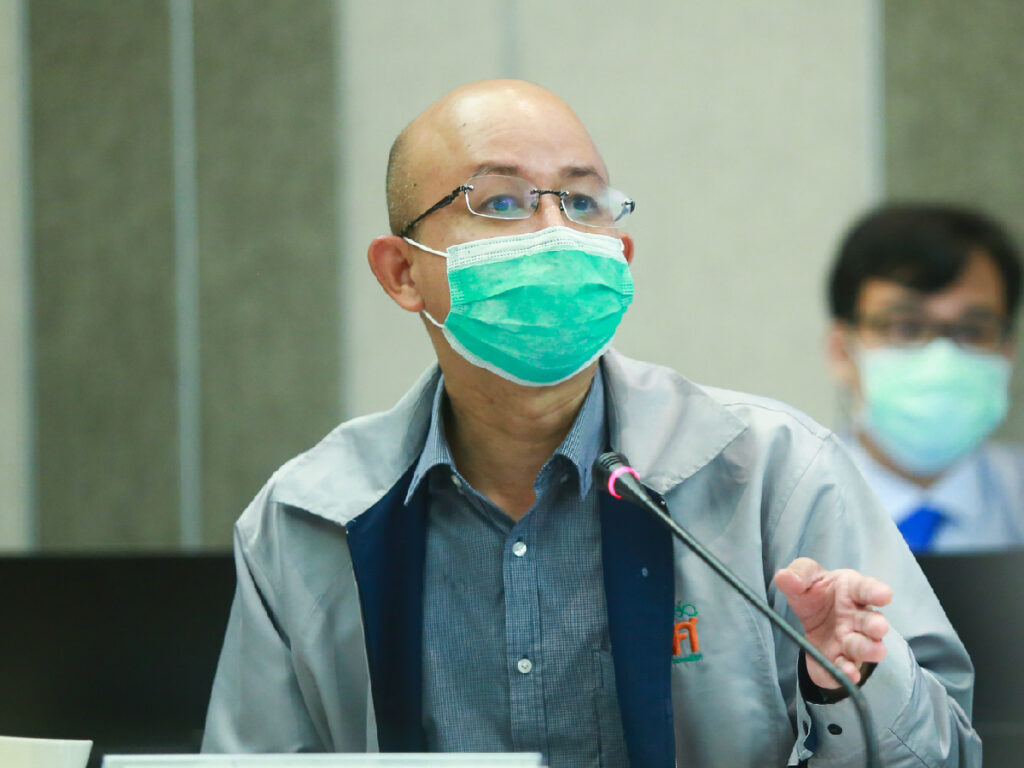
“It is an opportunity that enables us to more clearly understand the state of Thai employees, the abilities that are lacking, and the areas that need to be expanded. It will result in a policy that, after assessing the circumstance. How can we solve the problem so that the skills of Thai workers can be achieved as targets? For instance, where might we improve our digital or social-emotional skills? Directly, it may be used in a wide range of ways,” said Dr. Phoomsaran
Additionally, according to Dr. Phoomsaran, this event is a component of the national reform plan. The main section of the 20-year National Strategy and Country Reform for education, which will have one, indicates that Thailand will need to investigate the labor issue and the issue of quality inequality. Labor development is therefore necessary every three years.
“Thus, the job we did today is the start of gathering knowledge that should be very useful—perhaps not only once, but probably next time. Of course, because talented, well-paid employees enjoy a decent quality of life, the development of labor skills is crucial to reducing inequality. To gather information and build databases for use by researchers, the Equitable Education Fund (EEF) will collaborate with other parties. It will provide Thailand with more information that can be utilized to better study the country’s labor market,” said Dr. Phoomsaran
Koji, a senior economist at the World Bank, stressed the importance of statistics in his conclusion. For instance, the nations of the Organization for Economic Co-operation and Development (OECD) have examined statistics on the working-age population. It makes it possible to set up policies to correct their own shortcomings on the spot.
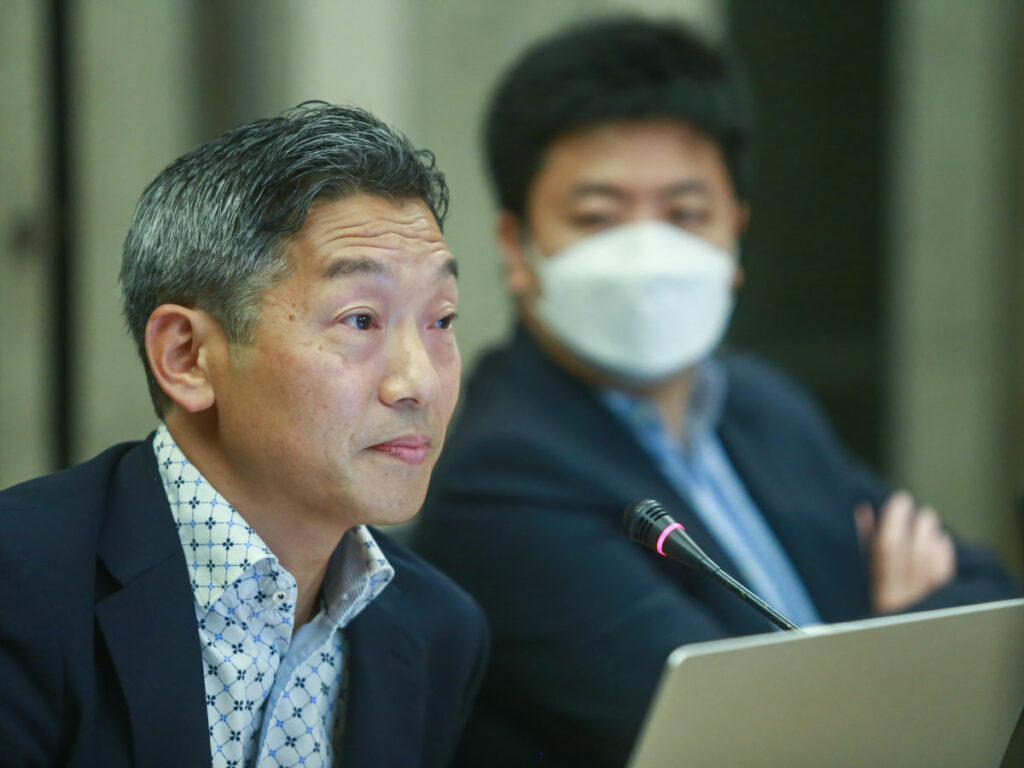
“It tends to be high being a middle-income nation. Thailand is the first country that continues to prepare serious information on labor skills in this section. Personally, I believe that Thailand will be able to use the information from this study to extend the results of developing the country under the Sustainable Development Goals (Thailand 4.0) and will serve as a model for the developing countries in other ways as well,” Koji said.
For the conference to drive progress over the previous three days, policy organizations related to education, youth, and labor are actively participating and ready to share their opinions and give advice and exchange.
The participating agencies can be divided into three main groups: the education sector, the Ministry of Labor, and the academic department, and international organizations such as the International Labor Organization (ILO), and the Thailand Science Research and Innovation (TSRI), Kasetsart University, and the United Nations International Children’s Emergency Fund (UNICEF).
The organizer will utilize this point of view in the processing, gather the information to create a report, which will be published at the conclusion of this year.

